A Beginner’s Guide to Understanding HOA Fees in Chicago
If you’re buying a condo or townhouse with commonly shared areas or amenities, the property is likely run by a homeowner’s association (HOA). The fees you pay to the association, otherwise known as HOA fees, go towards the ongoing and future maintenance of these amenities and spaces.
Why Do HOA Fees Vary So Much?
The fees can be collected monthly or yearly, and the amount is influenced by a number of factors:
- The size of the condominium
- The age of the building
- Included utilities
- The amenities or services provided
- How much is being set aside in reserves
- The size/square footage of the individual unit or property
Unlike co-ops or townhomes, everyone who owns a unit in the condo building chips in money to take care of the communal spaces. In Chicago, historical buildings and buildings with high-cost features like elevators and pools are more likely to have higher fees.
BUYER FAQ: What is a co-op?
Unlike a condo, you aren’t buying an individual unit. Instead, you buy shares in a corporation that owns the entire building and get a stake-hold to a specific unit. Services will still be bundled into singular community payments like HOA fees. LEARN MORE
BUYER FAQ: Where can you find the breakdown of HOA fees?
Ask your REALTOR®! They can provide the full list of included services from the listing.
What’s The Word On Reserves?
An HOA payment is divided into two major areas: routine maintenance costs and savings for the association’s reserves. These reserves are applied towards “capital expenses” which are typically large-scale or emergency in nature. For example, repairing or replacing the roof is a common reason to dip into reserves.
The reserves are intended to help cover the remaining costs the building insurance doesn’t cover. If the reserves aren’t enough, then a special assessment may be implemented. Even though your HOA fees will include building insurance, it’s highly recommended, and often required, that you get homeowners insurance for your individual unit and personal property.
Luckily, large expenditures like replacing the furnace or the roof are spaced out over many years. When it’s time to use the reserves or mandate a special monetary assessment, the homeowners association will vote on what to do.
Who Runs The Homeowners Association?
The homeowners! Typically, the association board members are elected from within the residents by all the residents in the building. During the regular HOA meetings, homeowners can discuss big projects or issues. When major decisions need to be made — like dipping into the reserves — all homeowners vote on it.
The board follows and implements official rules, bylaws and processes. These are sometimes called covenants or CC&Rs (Covenants, Conditions & Restrictions). CC&Rs determine what kinds of changes can be made to the exterior of your home, determine if you can own pets (and, if so, what kind), state what qualifies as a quorum on major projects in need of a vote and so on.
Buyer FAQ: What is the City of Chicago Condo Ordinance?
Chapter 13-72 of the Municipal Code of Chicago is the City of Chicago’s Condominium Ordinance. This is an official government document that protects the rights of the tenants in condo buildings. You should get a copy from your REALTOR®.
Buyer FAQ: When will you receive a copy of the bylaws or CC&R to review?
The condo association’s documents will be shared with you when you enter the attorney review period. Ask your REALTOR® to provide a complete journey of the transaction!
So, Are HOAs and HOA Fees For Me?
In Chicago, HOAs are a common entity. Explore different neighborhoods and building types if you’re interested in a condo but would like to target a specific price point in monthly HOA fees.
Here are some helpful considerations you should make as a prospective buyer so you can evaluate if a building with an HOA is the right fit for your living style:
- How do you prefer to pay for maintenance for your home – are you comfortable with making a monthly deposit for a future expense or with paying out of pocket when the emergency or need arises?
- How does something like a monthly HOA fee factor on top of your estimated monthly mortgage payment?
- What sorts of utilities are you comfortable being bundled into these fees?
- How important are lifestyle amenities like gyms, pools and common kitchens?
- How much freedom or autonomy do you want to make changes to your home?
- Do you have a preference between owner-occupied or investor-owned buildings?
- Do you plan on turning your home into a future investment property?
When in doubt, ask your REALTOR® about HOA fees during the homebuying process.











